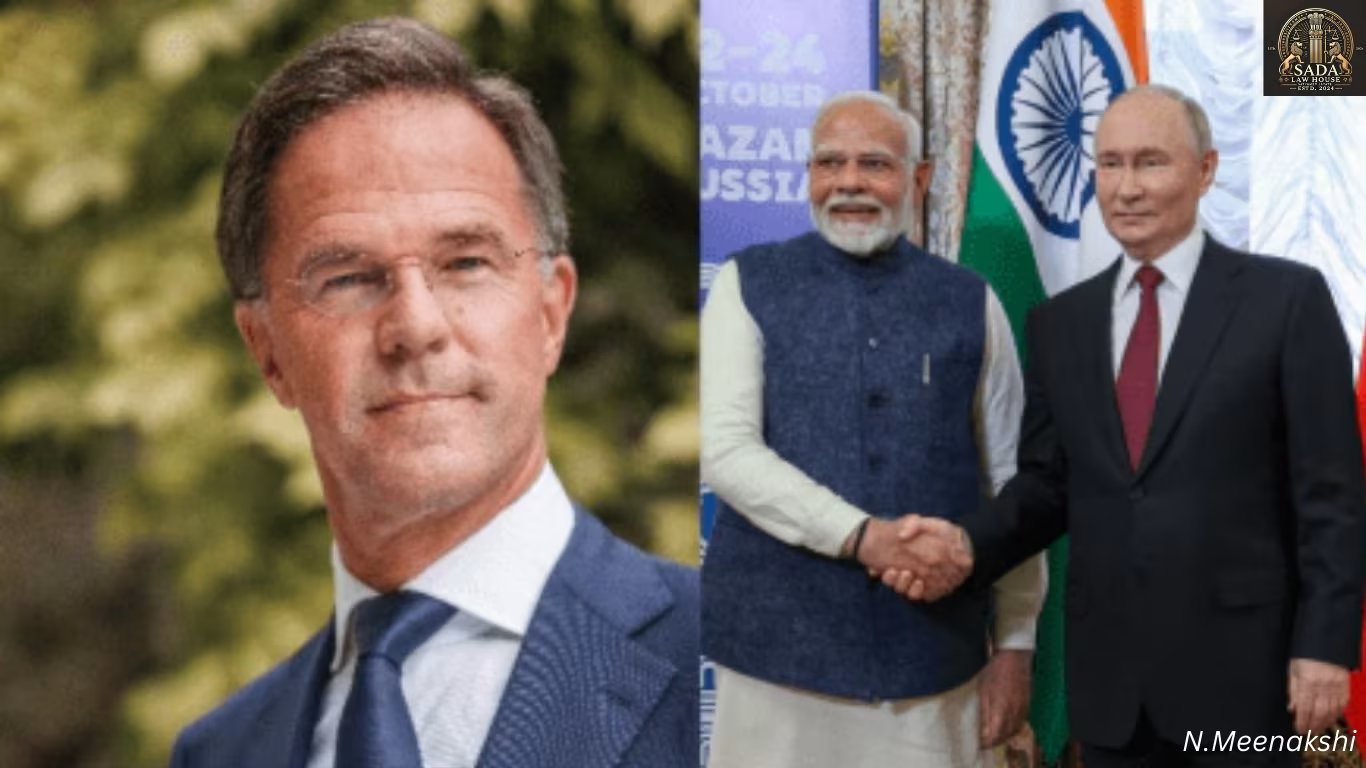MEA Rebuts NATO Chief’s Claim on Modi-Putin Call Over Ukraine, Tariffs
- Shivani Garg
- 30 September 2025

Introduction
The Ministry of External Affairs (MEA) has firmly rejected remarks by NATO Secretary-General Mark Rutte, who claimed that Prime Minister Narendra Modi recently pressed Russian President Vladimir Putin for clarity on the Ukraine conflict following steep U.S. tariffs on Indian goods.
Claim by NATO Chief
Rutte alleged that Modi reached out to Putin amid growing U.S. economic pressure, including a 50% tariff on Indian exports, suggesting that Washington’s measures were indirectly shaping Moscow’s calculations in Ukraine. He argued that such developments highlighted the effectiveness of economic sanctions and tariffs in altering geopolitical dynamics.
India’s Rebuttal
The MEA dismissed the NATO chief’s assertions as “factually incorrect and entirely baseless.” It clarified that no such demand was made by Modi in the manner described. The ministry further urged NATO’s leadership to act with “restraint and responsibility”, cau
tioning against speculative comments that misrepresent India’s foreign policy engagements.
Background & Context
Modi and Putin last spoke on September 17, 2025, on the Prime Minister’s 75th birthday, with India reiterating its position that the conflict in Ukraine should be resolved peacefully through dialogue.
India has consistently defended its independent foreign policy, balancing ties with Russia while maintaining strong partnerships with the United States and Europe.
The U.S. recently imposed 50% tariffs on Indian exports, citing India’s sustained oil trade with Russia — a move seen as an attempt to exert indirect pressure on New Delhi’s strategic choices.
Issues & Implications
The episode underscores the growing use of trade and tariffs as tools of foreign policy.
NATO’s claim risks straining perceptions of India’s diplomatic neutrality in the Russia-Ukraine conflict.
India’s strong rebuttal signals its intent to safeguard strategic autonomy and avoid being drawn into competing Western or Russian narratives.
Current Status
India has not announced any new diplomatic engagement with Russia or NATO following the controversy. The MEA’s statement suggests that New Delhi remains committed to its balancing act — advocating peace in Ukraine, protecting its energy security, and resisting external pressures on its foreign policy decisions.
Conclusion
The MEA’s rebuttal highlights India’s sensitivity to suggestions that its diplomacy is driven by U.S. trade pressure. At a time when economic measures are increasingly deployed as instruments of global politics, New Delhi appears determined to assert its independence while managing complex ties with both Washington and Moscow.






